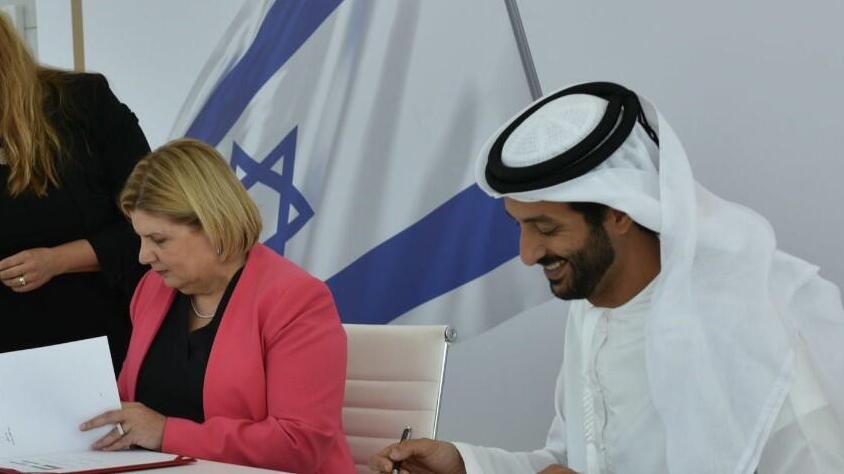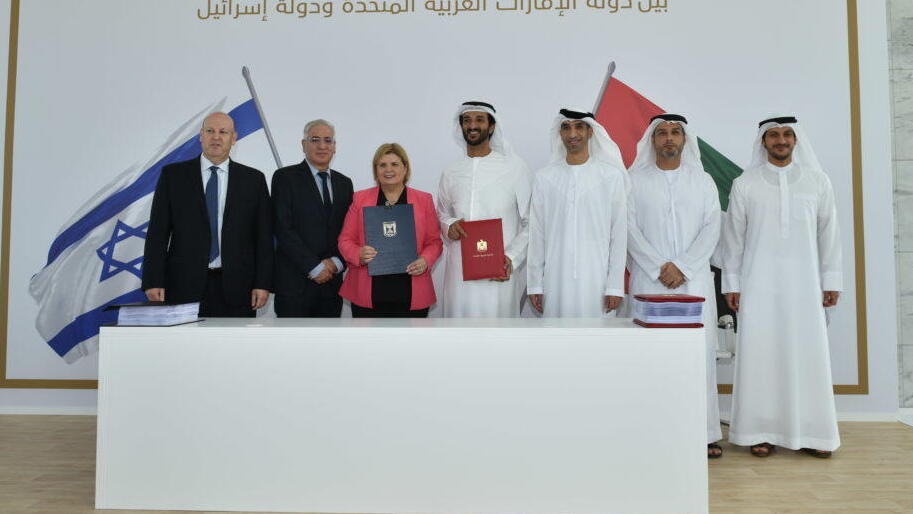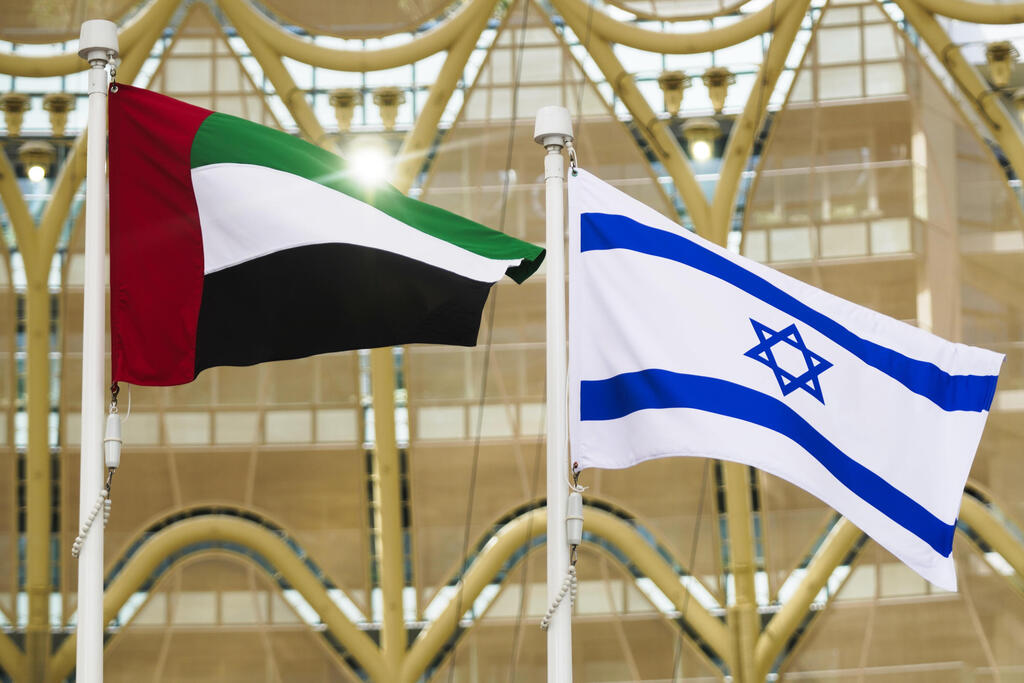The free trade agreement between the United Arab Emirates and Israel will redraw global trade routes and help bolster the ailing global supply chain, a senior Emirati executive said.
The historic agreement, which was signed on Tuesday in Dubai, is Israel’s first with an Arab state. It provides customs exemptions on 96% of trade between the two countries in a wide range of sectors, including food, agriculture, medical equipment, cosmetics and more.
3 View gallery


Israeli Economy and Industry Minister Orna Barbivai and Emirati Minister of Economy Abdulla bin Touq Al-Marri, sign a UAE-Israel free trade agreement
(Photo: The Media Line)
Dr. Sabah al-Binali, partner and executive chairman of OurCrowd Arabia, said that the agreement will help to “regrow” the global supply chain, which has undergone a series of crises due to the pandemic, the war in Ukraine and the recent lockdowns in China to prevent the spread of the coronavirus.
“The direct effect is that you’re going to see new trade routes redrawn,” said al-Binali, a seasoned Emirati investor and business executive. “As you know, the UAE is a trade hub. This link now with Israel will see changes in the global supply chain. This might actually be hastened with some of the global events that we’re seeing.”
In the long run, the deal may also encourage Israeli and Emirati companies to embark on joint ventures. Free trade, al-Binali noted, is in fact just the beginning.
“Trade is the first step to actually building global businesses together that can take over the whole world,” al-Binali said. “This first step is how we get the two markets, the two economies working with each other towards that.”
3 View gallery


Celebrating the signing of a free trade agreement between Israel and the United Arab Emirates in Dubai
(Photo: The Media Line)
The UAE-Israel free trade agreement covers customs, government procurement, regulation, services, e-commerce, and the protection of intellectual property rights. It follows the US-brokered Abraham Accords that were signed by Israel, the UAE and Bahrain at the White House on Sept. 15, 2020. Morocco later joined the agreement, and Sudan has agreed to join but its status in the deal remains in limbo.
Al-Binali spoke during a videoconference that was organized by MediaCentral.
Speaking to virtual attendees, Jonathan Medved, CEO of the global investment platform OurCrowd, called the agreement “remarkable.”
“I don’t think ever in history a free trade agreement was negotiated as quickly and as efficiently as this one was,” Medved said. “Usually, free trade agreements are reserved for countries’ best friends and they take years.”
Beyond the immediate economic benefits, the deal is expected to garner, Medved also expressed hope that it would have broader implications for the entire region.
“There are going to be other countries that will sign free trade agreements, and other countries that will join the accords,” he said.
Emirati Minister of Economy Abdulla bin Touq Al-Marri told the virtual conference last year that he expects the UAE to generate more than $1 trillion in trade with Israel over the coming decade.
Others are giving significantly more conservative estimates. “We foresee trade exceeding $5 billion in the next five years, and the UAE becoming one of Israel’s principal trading partners,” Dorian Barak, co-founder of the UAE-Israel Business Council said.
The UAE-Israel Business Council is the largest organization connecting the Israeli and Emirati business and professional communities. The council has 7,500 members and sponsors numerous events intended to promote trade between the two countries.
Speaking from Dubai, Barak said that bilateral trade has already far exceeded everyone’s expectations.
“This primarily reflects the deepening activity of Israel within the UAE,” he said. “It includes trades in goods and services – from diamonds to technology, water, medical and consumer goods – but also the establishment by Israeli companies of offices here in the UAE, which is really the regional hub.”
According to Barak, Israeli firms are using the UAE as a base to target other markets in the Middle East, South Asia and even the Far East.
The leading sectors that will benefit from the deal, he noted, are in the life sciences (medical and pharmaceuticals), renewable energy and financial services. Tourism is also set to get a significant boost.


